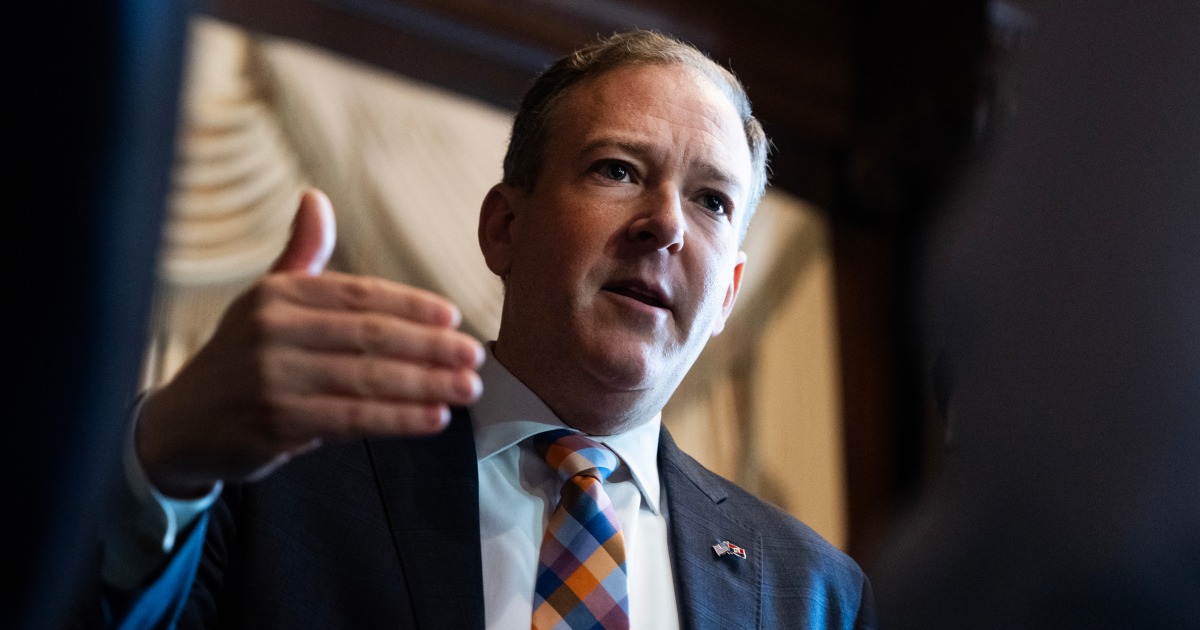This week fresh rumblings from the Trump administration’s Environmental Protection Agency emerged, outlining more anti-climate science plans — just as the International Court of Justice took a defining step to safeguard the planet.
The EPA, under the direction of Administrator Lee Zeldin, appears increasingly serious about scrapping the “endangerment finding,” a rule that serves as the fulcrum of U.S. climate action. Or, to borrow Zeldin’s words, “the holy grail of the climate change religion.”
The EPA, under the direction of Administrator Lee Zeldin, appears increasingly serious about scrapping the “endangerment finding,” a rule that serves as the fulcrum of U.S. climate action.
The finding, dating to 2009, indicates that “the elevated concentrations of the six greenhouse gases in the atmosphere — carbon dioxide (CO2), methane (CH4), nitrous oxide (N2O), hydrofluorocarbons (HFCs), perfluorocarbons (PFCs), and sulfur hexafluoride (SF6) — endanger both the public health and the public welfare of current and future generations.” In addition, the rule identifies motor vehicles as a culprit of the greenhouse gas emissions that sully the air and jeopardize our collective health.
It’s hard to overstate the significance of this rule. Regulating greenhouse gas emissions is essential to have any chance of mitigating the climate crisis, and the endangerment finding supplies the legal muscle to do so. Without this foundational leverage for tackling one of the most existential threats of our time, it’s virtually inconceivable how the U.S. could remain a meaningful player in global climate efforts.
The United Nations’ top court won’t be too pleased about that. As it turns out, on Wednesday, the ICJ issued a first-of-its-kind advisory opinion on climate change that starkly diverges from the narrative playing out in the Trump administration.
While Trump has infamously mocked climate change as “a great hoax,” the ICJ unanimously declared that international law obliges “the protection of the climate system and other parts of the environment from anthropogenic greenhouse gas emissions.”
While the EPA has couched its rationale for reconsidering the endangerment finding in language about “lowering the cost of living for American families,” the ICJ posited that “a clean, healthy and sustainable environment is a precondition for the enjoyment of many human rights, such as the right to life, the right to health and the right to an adequate standard of living, including access to water, food and housing.”
The court’s opinion, though considered nonbinding, has inspired some hope.
More than 130 countries supported Vanuatu, the Pacific island nation that spearheaded the efforts to bring this case to the ICJ. This matters both practically and symbolically. As the Trump administration has all but forfeited the U.S.’s role in global climate leadership, many have wondered whether this move would offer convenient guise for other big emitters to do the same. Though it’s perhaps too early to gauge whether this pretext will, for example, lower the threshold for what counts as ambitious commitments, there’s little evidence so far of widespread backsliding or a domino effect of disengagement in climate action.
It’s worth noting that the cost we’re incurring extends far beyond slower progress on curbing greenhouse gas emissions.
Instead, the U.S appears to be standing on lonely ground. As the international community inches toward a framework that increasingly recognizes the indivisibility of environmental protection, public health and human rights, Americans are left holding the tatters of a Trumpian “America First” agenda that, for some baffling reason, is concomitant with polluted air.
It’s worth noting that the cost we’re incurring extends far beyond slower progress on curbing greenhouse gas emissions. Our climate commitments are not merely being postponed. This is no longer a matter of climate change being demoted to a back-burner issue. We’re not just playing another round of kick-the-policy-can-down-the-road until someone remembers our world is on fire.
No, what we’re witnessing now is a full-on hollowing out. We’re facing a fundamental dismantling of levers — institutional, scientific and diplomatic — that risks leaving us with too little to rebuild from.
The second Trump term is attacking climate policy with a ferocity we didn’t see in the first. As this approach pulls us further away from international norms and trusted partners, it stands to erode both our planet’s prospects and our capacity to reclaim what we lose.

Leave a Reply Cancel reply